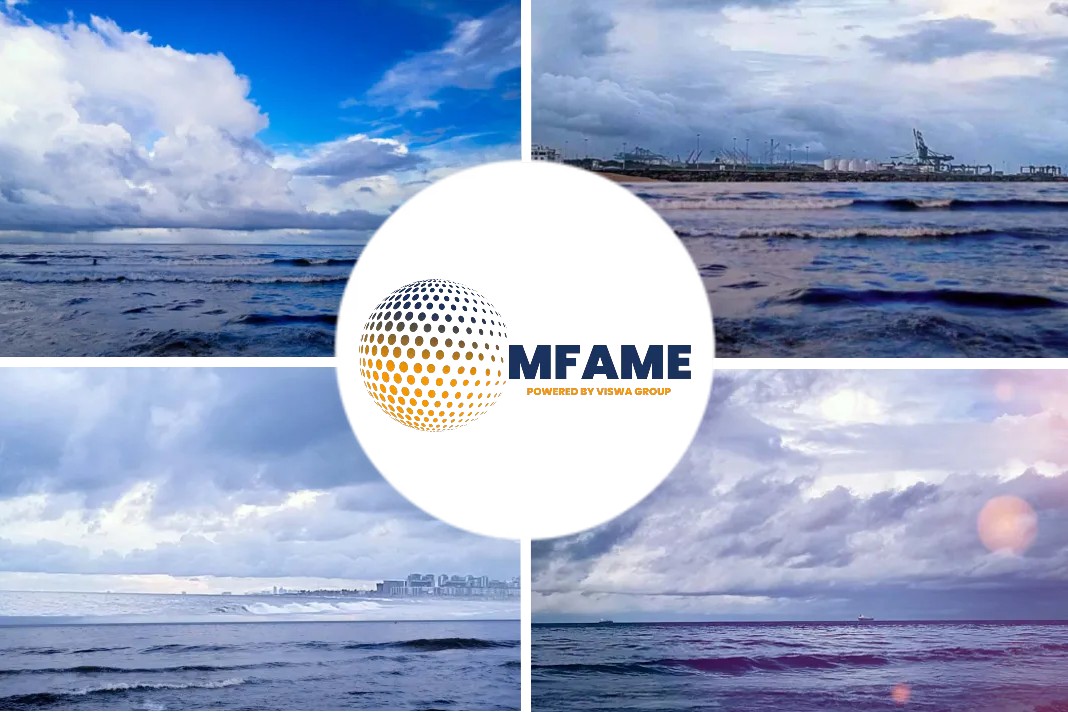Hapag-Lloyd has added a sixth ship to its U.S.-flag Atlantic Loop 3 (AL3) service that calls on ports in North Europe and the U.S. East Coast and Gulf Coast, reports Freight waves.
The company said the additional ship “will improve the reliability of the AL3 service for our customers and support our strategy of being number one for quality.”
Rio Grande Express
The 4,248-TEU Rio Grande Express will join five other U.S.-flag ships that the German carrier operates – Charleston Express, Washington Express, St. Louis Express, Yorktown Express and Philadelphia Express.
The Rio Grande Express is not geared and is owned by Seaspan Corp.
While not identifying Hapag-Lloyd, Bing Chen, the chief executive officer of Seaspan, said in a call with securities analysts that his company had entered into a five-year charter for a U.S.-flag Panamax-size container ship.
He hinted the company may have additional U.S.-flag business, saying, “This is expected to have more vessels over the next year to phase into such a program.”
Maritime Security Program
The other five ships in the AL3 service are enrolled in the U.S. Maritime Administration’s Maritime Security Program (MSP).
In that program, companies operating U.S.-flag ships in foreign trade with U.S. mariners agree to make their ships available to the military upon request by the secretary of defense during a war or time of national emergency.
Because enrollment in the program is currently capped at 60 vessels, the Rio Grande Express will not be part of the MSP fleet.
In return for that promise, participants in the MSP receive a stipend to help offset the higher cost of operating a U.S.- flag ship with a U.S. crew while competing with foreign-flag carriers. The federal fiscal year 2020 budget requested $300 million for the MSP — or $5 million per ship.
Scheduled decline in MSP stipend
The U.S. subsidiaries of foreign companies provide the majority of the ships in the MSP. They including Maersk Line Ltd., and its Farrell Lines subsidiary, APL Marine Services, Fidelio Limited Partnership and American Roll-on Roll-off Carriers, which are part of Wallenius Wilhelmsen Logistics ASA.
The International Organization of Masters Mates and Pilots union (MM&P), whose members serve as deck officers on U.S.-flag ships, has expressed concern that the MSP stipend is scheduled to decrease from the statutory $5.2 million per ship authorized in FY 21 to $3.7 million in each of FY 22-25.
The MM&P, said it was “asking Congress to take the necessary steps to prevent this arbitrary decrease from going into effect.“
“Failing to address this funding shortfall will seriously impede the ability of vessel operators to maintain their vessel operations under the U.S. flag and to continue to provide the commercial sealift capability and American maritime manpower needed by the Department of Defense.”
Financial viability of U.S. flag vessels
An August 2018 report from the Government Accountability Office said that “even with the annual MSP stipend, maintaining the financial viability of U.S.-flag vessels is a challenge. This challenge largely results from the higher costs of operating a U.S.-flag vessel.”
“According to U.S. Maritime Administration (MARAD) officials, the additional cost of operating a U.S.-flag vessel compared to a foreign-flag vessel has increased — from about $4.8 million annually in 2009 and 2010 to about $6.2 to $6.5 million currently — making it harder for such vessels to remain financially viable,” the officer added.
The port rotation for the ships in Hapag-Lloyd’s AL3 service is Houston – Savannah – Norfolk – Antwerp – Hamburg – London Gateway – Charleston – Savannah – Port Everglades – Houston.
Did you subscribe to our daily newsletter?
It’s Free! Click here to Subscribe!
Source: Freight Waves

















